The back-to-school season can be a rough change for the whole household, including pets who have enjoyed a summer full of activity and company. Burlington Veterinary Center encourages you to implement a few changes long before the big first day of school, to help ensure your pet has a smooth transition to the new school year.
Change your pet’s schedule slowly to prevent surprises
Separation anxiety can emerge during schedule changes and prolonged owner absences. Minimize the risk of anxious behavior by making the transition gradually. Starting a few weeks before school begins, leave your pet at home for gradually increasing periods of time. If your pet shows excessive vocalizing, destructive behavior, house soiling, or exuberant greetings and clingy behavior upon your return, shorten your time away, or contact us for an assessment.
Give your pet their own space
Your pet will be more comfortable with their new situation if they have a safe, familiar place to stay while everyone is gone. Crates are great options for pets who enjoy them, but they can be dangerous for those who panic and try to escape. Confinement to a small, secure room free of pet hazards is ideal for dogs and cats who need a bit more space, but cannot be trusted with total freedom. The following touches can add comfort to your pet’s new space:
- Comfortable bedding
- Long-lasting food toys or puzzles
- Soft music to reduce outside disturbances
- Calming pheromone sprays (e.g., Adaptil or Feliway) applied to bedding
- A familiar item (e.g., an old shirt) that carries your scent
- Litter box
- Food and water, if needed
Schedule your pet’s back-to-school physical
Your pet may not be going out for the football team, but a new school year is a great time to bring them to Burlington Veterinary Center for a physical examination and preventive care. Keeping your pet current on vaccinations and annual screening tests is the most effective way to ensure pet health, but is often delayed or forgotten during busy times, leaving pets at risk for disease. Don’t let your pet get lost in the school year shuffle by scheduling any necessary services before they are way overdue.
Adjust your pet’s meal times
Stress can cause your pet unpleasant gastrointestinal side effects, including vomiting and diarrhea. If your pet’s meal times will be modified for the school year, make any changes gradually, to minimize their likelihood of an upset stomach. Avoid changing your pet’s food, and resist the temptation to spoil your pet with new treats or human food to make up for your absence.
Toys that can be filled with food such as a Kong or Toppl can keep your pet busy and satisfied while the family is away. Fill the toys with easily digestible foods, and save the fun recipes for a less stressful time. Your pet’s current food in its wet formula can work nicely. Adjust your pet’s meals accordingly, to prevent weight gain.
Maintain your pet’s exercise
When a pet suddenly becomes sedentary, they may rapidly put on the pounds. Exercise is vital to a pet’s physical health, and also contributes to mental satisfaction. In addition, a tired dog is less likely to display boredom-induced destructive behavior. For pets accustomed to a midday walk, consider a morning jaunt instead—this will ensure your dog settles in after everyone leaves for the day.
For many busy families, dog walking or doggy daycare services offer a convenient way to meet your dog’s social and physical needs. A dog walker can break up your pet’s day, and allow them to explore the neighborhood, while daycare can be a fulfilling experience for dogs who love to romp and play with other dogs.
Special considerations for senior class pets
Aging pets may have unique challenges with a new schedule, and require extra attention to address their special needs. Help your senior pet by providing:
- More bathroom breaks — Older pets may not be able to hold their urine and stool for long periods, so ensure someone is available to let them out at midday, or pay a dog-walking service to visit.
- Extra traction on slick floors — If your dog prefers to sleep on uncarpeted floors, put down slip-resistant rugs to help them get up on their own.
- Barriers to keep them safe — Keep pets with cognitive dysfunction or vision loss away from stairs and slick floors with baby gates.
Plan ahead for anxious pets
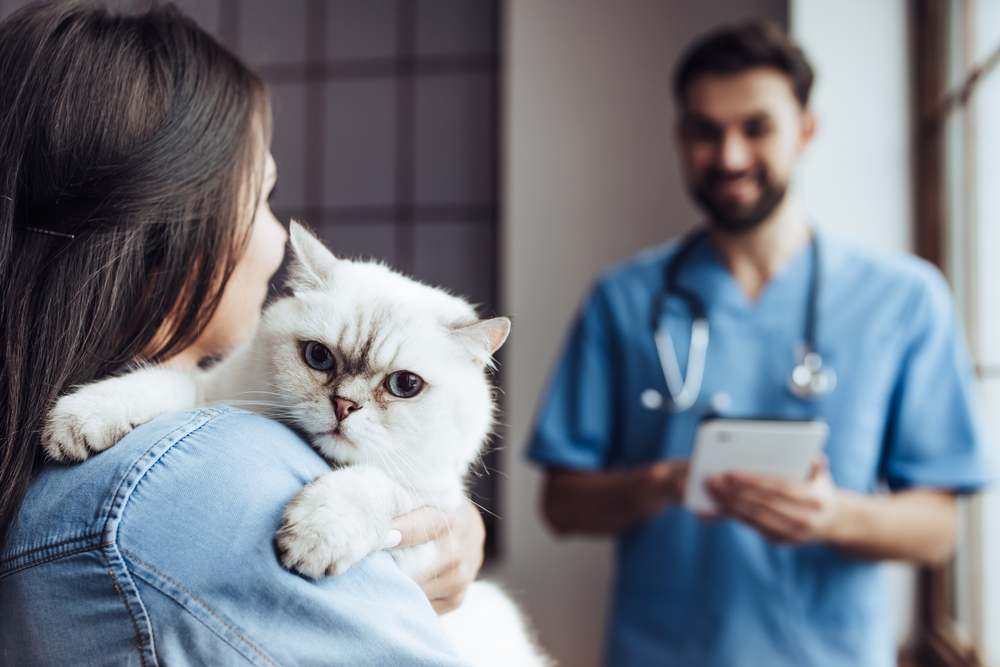
If your pet has a history of anxiety, schedule an appointment with our team. Our veterinarians can evaluate your pet to confirm their behavior is not because of medical reasons, and may prescribe safe supplements or medications to help. While many over-the-counter pet anxiety remedies are available, they are not regulated, and may cause harm instead of relief.
Adapting to a new routine can take time, so be patient with your pet as they adjust their own rhythms to match the family. Give your pet a head start with these tips, and they will be a frontrunner for the “Best Behaved” award.
For additional information about managing separation anxiety, or to schedule your pet’s back-to-school wellness examination, contact Burlington Veterinary Center.


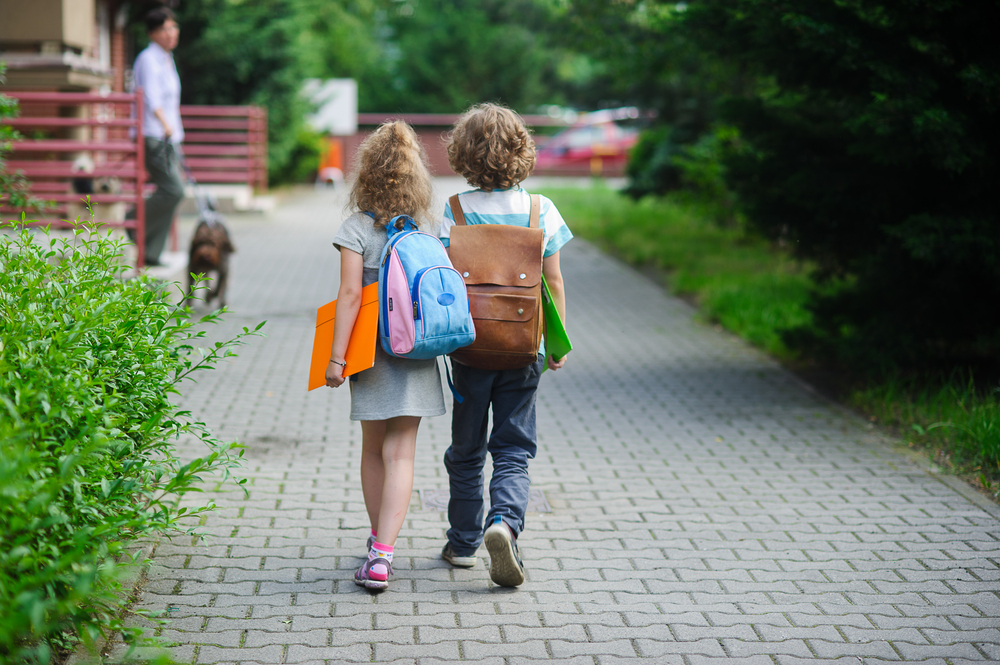
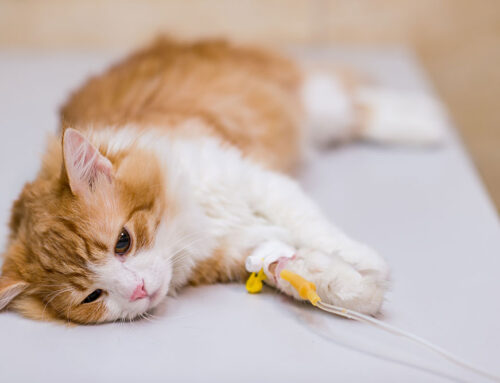
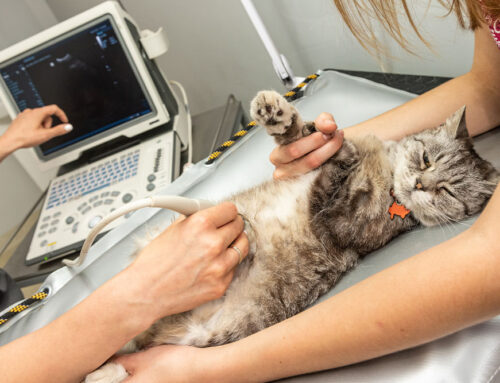

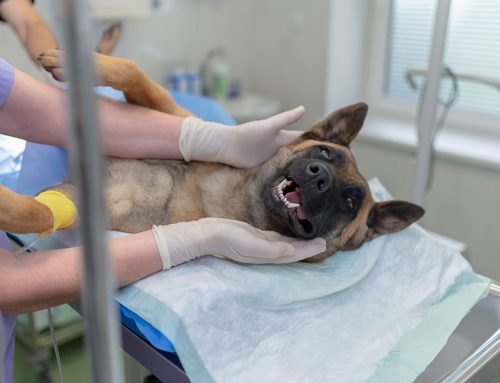
Leave A Comment